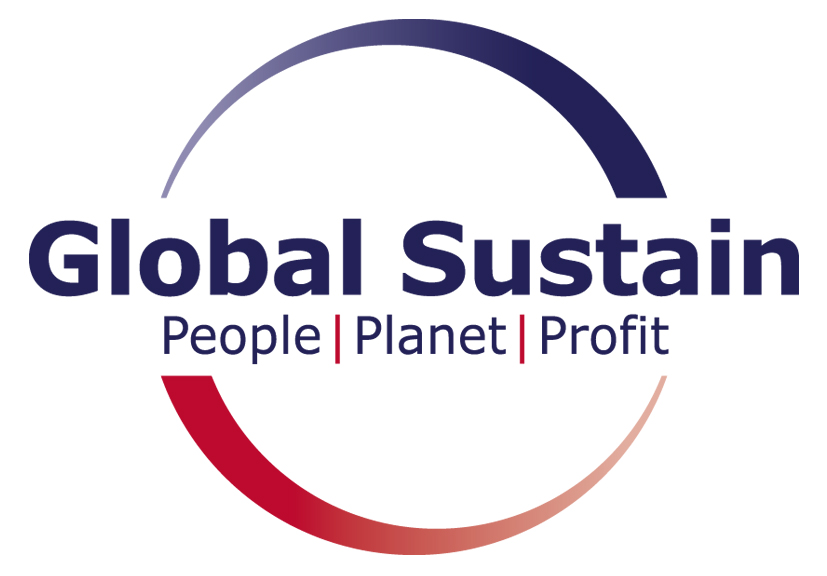EuroCharity interviews Ms. Elina Sviklina, GRI Manager Report Services
Published 09-26-12
Submitted by Global Sustain Limited (Ltd.)

Ms. Elina Sviklina, Manager Report Services, Global Reporting Initiative (GRI), will be speaking at the Sustainability Forum 2012 in Peania, Athens on October 5. GRI Report Services provides knowledge and support for all GRI reporters, and captures the data that identifies reporting trends and innovations.
EuroCharity: Your speech at the Sustainability Forum 2012 is entitled "The Future of Sustainability Reporting". Could you brief us on this future? What do you think lies ahead?
ES: We have seen a continuous increase over the last decade in the number of organisations reporting their sustainability performance, and we expect this trend to continue in the coming years. GRI's mission is to make sustainability reporting standard practice, so growth in the number of reports needs to accelerate to make this happen. GRI is now working with experts from around the world to update the Guidelines -- the next generation, G4, will help ensure there are more and better reports in the future.
What are the main developments and the major challenges in the field of Sustainability Reporting at this given time?
ES: When we look at sustainability reporting today we see that every year more and more organisations disclose information about their sustainability impacts. In 2010 Bloomberg projected that over 4,500 reports were based on GRI Guidelines, and in 2011 KPMG research showed that 95% of the 250 biggest companies in the world report and 80% of these use the GRI Guidelines.
The demand for sustainability performance information is increasing, but there are several issues that need to be addressed. There is lots of reporting guidance available on different topics and for different sectors, but the metrics are currently not coherent or harmonised. There is also a lack of precision, which can lead to high reporting and assurance costs. Most reports lack material focus -- that is, they include all available data rather than focusing on what really matters to the organisation and its stakeholders. And information is usually presented in PDF or other unfriendly formats, which can make it difficult for people like investors to find the data they need in reports.
GRI is now working on the next generation of the Guidelines to address all these challenges, and is asking the public to provide their feedback on proposed changes to the Guidelines.
What do companies need to have in their minds regarding Integrated Reporting?
ES: Integrated reporting certainly is a new trend -- one led by companies innovating in their reporting. GRI is one of the founding members of the International Integrated Reporting Council (IIRC), which aims to provide guidance on how to prepare integrated reports. Currently the development of the IIRC's reporting framework is in process and they will publish their proposed guidance on integrated reporting in 2013.
Could you inform our readers on the GRI G4 Guidelines and their benefits?
ES: GRI is developing G4, the next generation of GRI Sustainability Reporting Guidelines with the following objectives:
- To make them more user-friendly for beginners and experienced reporters
- To improve technical quality, with clearer definitions
- To align with other reporting frameworks
- To offer guidance which leads to material reports ("materiality")
- To offer guidance on how to link sustainability reporting and integrated reporting - aligned with IIRC
- To provide support to improve data searching (XBRL)
GRI is inviting sustainability professionals and experts, and organisations, to provide feedback on proposed changes to the Guidelines. The Exposure Draft of G4 is open for comment until September 25, and changes to anti-corruption and greenhouse gas emissions guidance is available for feedback until November 12.
What other tools can help companies in the reporting process?
ES: GRI has developed the GRI XBRL Taxonomy -- a categorisation scheme that defines and 'tags' data in relation to its purpose, framework or outline, in this case the GRI Guidelines. It enables users to uniquely tag and identify individual detailed reporting elements which can be easily shared electronically. The GRI Taxonomy will help reporters prepare their reports in a way that investors, auditors and analysts can access information in sustainability reports faster, and more simply.
Since 2009 GRI has also been working with software providers to verify the accurate use of content from the GRI Reporting Framework in their software and tools. All the software and tools that have completed this programme are listed in the GRI Certified Software and Tools directory.
Why should companies issue sustainability reports? In other words, how can Sustainability Reporting help companies?
ES: A sustainability report enables companies and organisations to report sustainability information in a way that is similar to financial reporting. Systematic sustainability reporting gives comparable data, with agreed disclosures and metrics. An effective sustainability reporting cycle should benefit all reporting organisations. Internal benefits for companies and organisations can include:
- Increased understanding of risks and opportunities
- Emphasising the link between financial and non-financial performance
- Influencing long term management strategy and policy, and business plans
- Streamlining processes, reducing costs and improving efficiency
- Benchmarking and assessing sustainability performance with respect to laws, norms, codes, performance standards, and voluntary initiatives
- Avoiding being implicated in publicised environmental, social and governance failures
- Comparing performance internally, and between organisations and sectors
External benefits of sustainability reporting can include:
- Mitigating -- or reversing -- negative environmental, social and governance impacts
- Improving reputation and brand loyalty
- Enabling external stakeholders to understand company's true value, and tangible and intangible assets
- Demonstrating how the organisation influences, and is influenced by, expectations about sustainable development
Do you think that Sustainability Reporting should be mandatory? Would that affect the result?
ES: GRI promotes a report or explain approach to sustainability reporting policy, where organisations report their sustainability performance or explain why they do not report. Sustainability reporting does not necessarily need to be mandatory: If regulators were to adopt a report or explain policy, companies could still be free to choose what information to disclose. Such an approach could persuade more companies to report rather than to explain why they don't, and provide markets and society with information to judge their choices.

Global Sustain Limited (Ltd.)
Global Sustain Limited (Ltd.)
About Global Sustain
Founded in 2006, Global Sustain with offices in Athens, Berlin, Brussels, London, New York and Nicosia, creates awareness and inspires and supports companies and organisations to embody sustainability, through advisory, communications, networking and training, with a focus on the people-planet-profit philosophy. Its members include corporations, non-governmental and non-profit organisations, municipalities and local authorities, educational foundations, media, professional bodies, think tanks and other public or private entities. Global Sustain is a signatory to the Ten Principles of the UN Global Compact, to the Principles for Responsible Investment (PRI), a GRI Data Partner and Organisational Stakeholder (OS), an affiliated member of the Academy of Business in Society, Social Value International, Institute of Directors, CEO Clubs and EFQM. www.globalsustain.org / www.globalsustaingroup.com
More from Global Sustain Limited (Ltd.)

